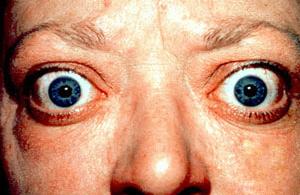This is how the AI article summary could look. Lorem ipsum dolor sit amet, consectetur adipiscing elit, sed do eiusmod tempor incididunt ut labore et dolore magna aliqua. Ut enim ad minim veniam, quis nostrud exercitation ullamco laboris nisi ut aliquip ex ea commodo consequat.
10 Autoimmune Diseases – When to Worry and When to See a Doctor

Lupus (SLE) ‘butterfly’ rash
Here’s a list of 10
autoimmune diseases, including what it is, typical symptoms, when to worry, and when to see a doctor.
1. Rheumatoid Arthritis (RA)

- What it is: RA is an autoimmune disease that causes inflammation in the joints, leading to pain, swelling, and potentially severe joint damage.
- Symptoms: Joint pain, stiffness, swelling, fatigue, fever, and loss of function.
- When to Worry: Persistent joint pain or stiffness, especially in the morning or after periods of rest.
- When to See a Doctor: If joint pain persists for more than a few weeks or interferes with daily activities.
2. Lupus (Systemic Lupus Erythematosus, SLE)
- What it is: Lupus is a chronic autoimmune disease that can affect various parts of the body, including the skin, joints, kidneys, and other organs.
- Symptoms: Fatigue, fever, joint pain, skin rashes (especially a butterfly-shaped rash on the face; see above), and CKD (chronic kidney disease).
- When to Worry: Unexplained fever, rash, or joint pain that persists or worsens.
- When to See a Doctor: If you experience symptoms like unexplained fever, severe joint pain, or a characteristic rash.
3. Hashimoto’s Thyroiditis (hypothyroidism)
- What it is: Hashimoto’s is an autoimmune disease that affects the thyroid gland, leading to hypothyroidism (underactive thyroid).
- Symptoms: Fatigue, weight gain, cold intolerance, hair loss, dry skin, and depression.
- When to Worry: Persistent fatigue, unexplained weight gain, or cold intolerance.
- When to See a Doctor: If you experience symptoms of hypothyroidism or have a family history of thyroid disease.
4. Type 1 Diabetes
- What it is: Type 1 diabetes is an autoimmune disease where the immune system attacks the insulin-producing beta cells in the pancreas, leading to high blood sugar levels.
- Symptoms: Increased thirst, frequent urination, weight loss, blurred vision, and fatigue.
- When to Worry: Symptoms like increased thirst and urination, especially in children or young adults.
- When to See a Doctor: If you experience symptoms of high blood sugar or suspect you might have diabetes.
5. Multiple Sclerosis (MS)
- What it is: MS is an autoimmune disease that affects the central nervous system (brain and spinal cord), leading to symptoms like numbness, weakness, difficulty walking and vision problems.
- Symptoms: Vision problems, muscle weakness, numbness or tingling, balance issues, and fatigue.
- When to Worry: Unexplained vision problems, numbness, or weakness in limbs.
- When to See a Doctor: If you experience persistent or recurring neurological symptoms.
6. Psoriasis

- What it is: Psoriasis is an autoimmune disease that causes skin cells to build up and form scales and red patches.
- Symptoms: Red, scaly patches on the skin (especailly back of elbow, and front of knee), itching, and joint pain (in psoriatic arthritis).
- When to Worry: Persistent skin patches or joint pain associated with skin symptoms.
- When to See a Doctor: If skin symptoms persist or worsen, or if you suspect psoriasis.
7. Coeliac Disease
- What it is: Celiac disease is an autoimmune reaction to gluten, leading to inflammation and damage in the small intestine.
- Symptoms: Diarrhoea, abdominal pain, bloating, fatigue, and weight loss.
- When to Worry: Persistent gastrointestinal symptoms after consuming gluten.
- When to See a Doctor: If you experience symptoms after eating gluten-containing foods.
8. Guillain-Barré Syndrome (GBS)
- What it is: Guillain-Barré syndrome is a rare autoimmune disorder where the immune system attacks the nerves, leading to muscle weakness and sometimes paralysis.
- Symptoms: Muscle weakness, numbness or tingling; and in severe cases, paralysis (usually temporary).
- When to Worry: Rapid onset of muscle weakness or numbness, especially after an infection.
- When to See a Doctor: If you experience sudden muscle weakness or difficulty breathing.
9. Vitiligo

- What it is: Vitiligo is an autoimmune disease that causes loss of skin pigment cells, leading to white patches.
- Symptoms: White patches on the skin, premature graying of hair.
- When to Worry: Noticeable white patches on the skin or premature hair graying.
- When to See a Doctor: If you notice skin patches or changes in skin pigmentation.
10. Graves’ Disease (hyperthyroidism)

Exophthalmos (bulging eyes)
- What it is: Graves’ disease is an autoimmune disorder that causes hyperthyroidism (overactive thyroid gland).
- Symptoms: Weight loss, rapid heartbeat, anxiety, heat intolerance, and bulging eyes.
- When to Worry: Unexplained weight loss, rapid heartbeat, or anxiety.
- When to See a Doctor: If you experience symptoms of hyperthyroidism or have a family history of thyroid disease.



